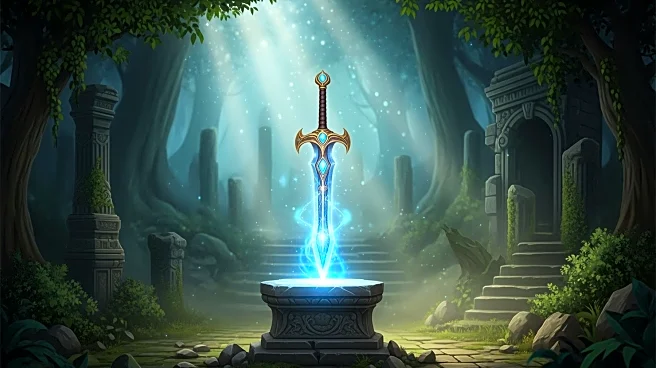What's Happening?
Titan Quest 2, a singleplayer-friendly action role-playing game (ARPG) inspired by Greek mythology, is currently available at a discounted price before a scheduled price increase. The game, which is still
in early access, is free from typical cash shop items and battle passes, offering a nostalgic experience reminiscent of earlier ARPGs. The price is set to rise by $5 on November 11, but it is currently on sale for $26.99. PC Gamer's online editor Fraser Brown noted that playing the game felt like a journey back to a simpler era, allowing enjoyment without the intense number crunching and live service systems common in modern ARPGs. Despite its relaxing nature, the game has been expanding with new regions and bosses since its launch.
Why It's Important?
The sale of Titan Quest 2 before its price increase highlights the evolving landscape of ARPGs, where players are increasingly seeking games that offer a break from the complex systems and monetization strategies prevalent in the genre. This development is significant for gamers who prefer singleplayer experiences without the pressure of seasonal gear sets and live service engagement tactics. The game's approach may attract a niche audience looking for a more straightforward and relaxing gaming experience, potentially influencing future game designs in the ARPG market.
What's Next?
As Titan Quest 2 continues to expand with new content, players can expect further updates and enhancements that may increase its appeal. The impending price increase could also prompt a surge in purchases from gamers eager to secure the game at its current lower price. Developers might continue to refine the game based on player feedback, potentially adding more challenging elements to balance its relaxing nature with the grand stakes of Greek legend.
Beyond the Headlines
The trend towards singleplayer-friendly ARPGs like Titan Quest 2 may reflect a broader shift in gaming preferences, where players seek more personal and less commercially driven experiences. This could lead to a resurgence of interest in games that prioritize storytelling and immersive worlds over competitive and monetized elements, impacting the future direction of game development.










